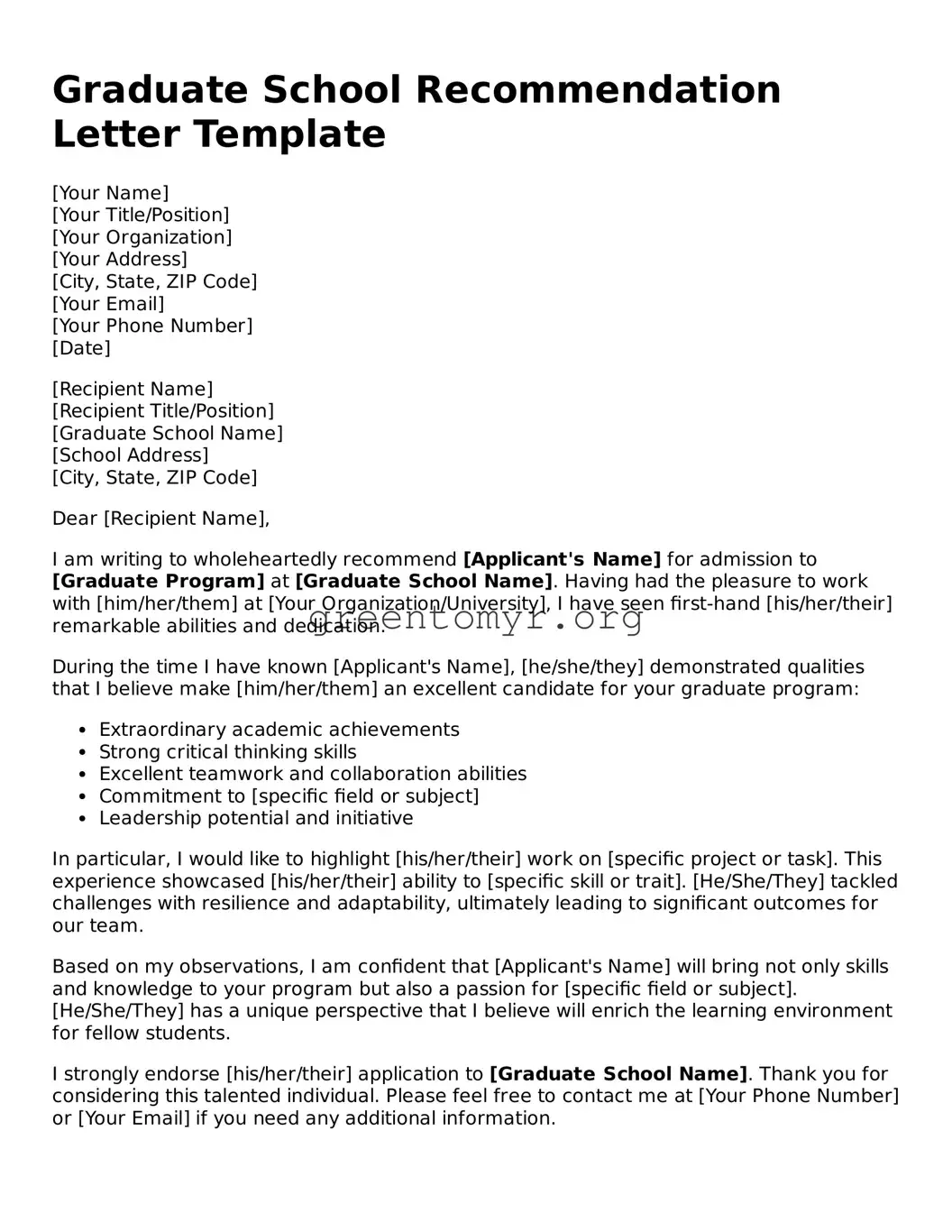Graduate School Recommendation Letter Template
[Your Name]
[Your Title/Position]
[Your Organization]
[Your Address]
[City, State, ZIP Code]
[Your Email]
[Your Phone Number]
[Date]
[Recipient Name]
[Recipient Title/Position]
[Graduate School Name]
[School Address]
[City, State, ZIP Code]
Dear [Recipient Name],
I am writing to wholeheartedly recommend [Applicant's Name] for admission to [Graduate Program] at [Graduate School Name]. Having had the pleasure to work with [him/her/them] at [Your Organization/University], I have seen first-hand [his/her/their] remarkable abilities and dedication.
During the time I have known [Applicant's Name], [he/she/they] demonstrated qualities that I believe make [him/her/them] an excellent candidate for your graduate program:
- Extraordinary academic achievements
- Strong critical thinking skills
- Excellent teamwork and collaboration abilities
- Commitment to [specific field or subject]
- Leadership potential and initiative
In particular, I would like to highlight [his/her/their] work on [specific project or task]. This experience showcased [his/her/their] ability to [specific skill or trait]. [He/She/They] tackled challenges with resilience and adaptability, ultimately leading to significant outcomes for our team.
Based on my observations, I am confident that [Applicant's Name] will bring not only skills and knowledge to your program but also a passion for [specific field or subject]. [He/She/They] has a unique perspective that I believe will enrich the learning environment for fellow students.
I strongly endorse [his/her/their] application to [Graduate School Name]. Thank you for considering this talented individual. Please feel free to contact me at [Your Phone Number] or [Your Email] if you need any additional information.
Sincerely,
[Your Name]
